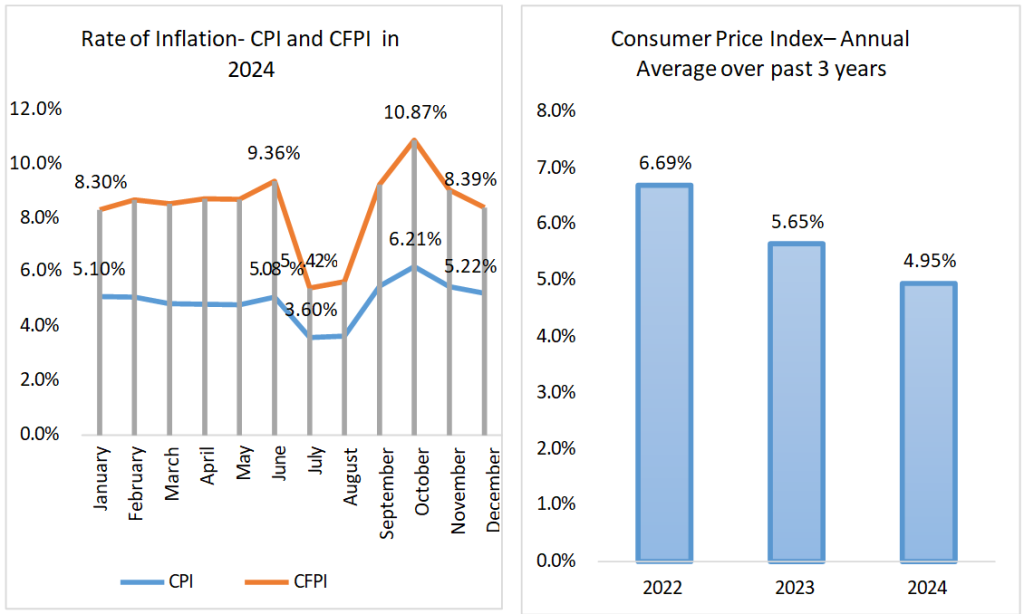The Indian government has taken measures to manage the prices and availability of essential food commodities, balancing the interests of both consumers and farmers. These efforts have resulted in reasonable price stability despite various challenges, including the El Niño weather phenomenon and global market fluctuations. This press release was issued on January 17, 2025.
Positive Production Outlook
Favorable monsoon rains and weather conditions have contributed to positive production estimates for key crops in 2024-25. Tur production is projected to increase by 2.5% compared to the previous year, with government procurement sanctions already in place. Chana and Masur production are also expected to be strong, and Kharif Moong production is estimated to be 20% higher than last year. Similarly, onion and potato sowing has progressed well due to favorable climate.
Inflation Moderation

Retail inflation in December 2024 was 5.22%, significantly lower than the October peak of 6.21%. Food inflation also moderated in December to 8.39% from 10.87% in October. The average retail inflation rate for 2024 (4.95%) is lower than the rates for 2022 (6.69%) and 2023 (5.65%).
Challenges Faced and Government Response
The government faced several challenges in maintaining price stability:
- El Niño Impact: Consecutive years of below-average production of pulses due to erratic monsoon rains.
- Trade Disruptions and Speculation: Exploitation of low stock positions and speculative trading activities.
- Onion Production Decline: A 20% drop in domestic onion production in 2023-24 combined with rising international prices.
- Potato Price Pressure: A marginal decline in potato production coupled with increased demand due to reduced supply of green vegetables.
To address these challenges, the government implemented several strategies:
- Removing procurement ceilings under the Price Support Scheme (PSS) for Tur, Urad, and Masur, guaranteeing 100% procurement at Minimum Support Price (MSP). Pre-registration of farmers for assured procurement was also implemented, along with initiatives to expand pulses cultivation to new areas.
- Extending duty-free import policies for Tur, Urad, and Masur until March 31, 2025. Allowing duty-free import of Yellow Peas and Chana to address specific supply shortfalls. Continuing the sale of pulses under the “Bharat” brand to directly impact retail prices.
- Procuring a significant buffer stock of Rabi onions at a higher average price than the previous year to benefit farmers. Releasing onions from the buffer stock through various channels at affordable prices for consumers. Calibrating the onion export policy to balance domestic supply and international trade.
These proactive measures have yielded positive results:
- CPI pulses inflation rate decreased significantly from 19.54% in January 2024 to 3.83% in December 2024.
- Onion exports increased substantially in the latter part of 2024 after adjustments to the export policy.

